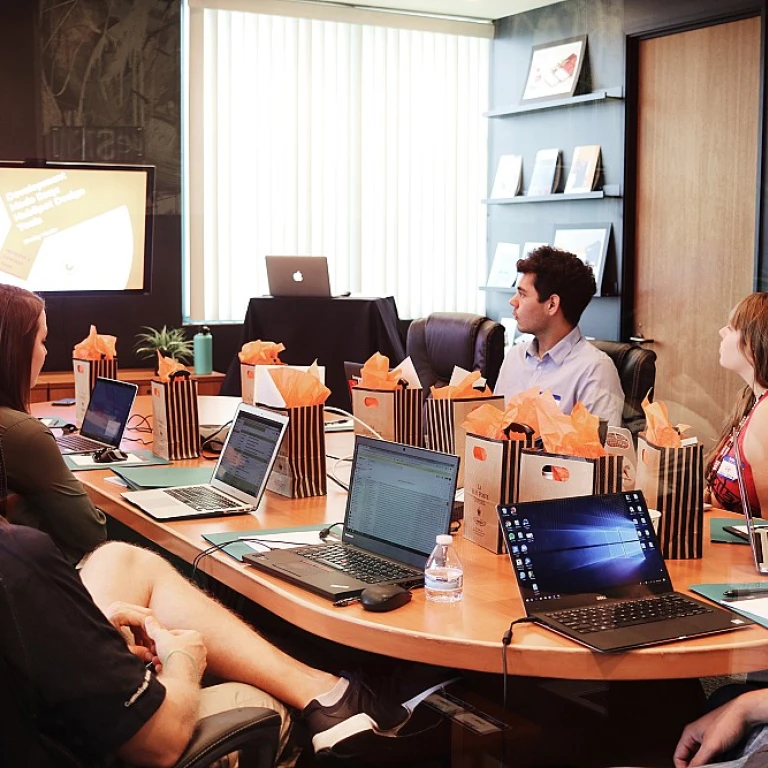Balancing Leadership and Personal Time
Finding Harmony Between Leadership Responsibilities and Personal Time
Balancing leadership responsibilities with personal time can be quite the juggling act, especially for those in the role of a development director. As someone who often spearheads nonprofit fundraising efforts and works closely with an executive director, it's crucial to build a solid foundation of time management and personal development strategies. In a development director job, the focus is on setting and achieving fundraising goals, managing donor relations, and overseeing nonprofit development initiatives. These responsibilities can often extend beyond the typical workday, leading to potential challenges in maintaining a healthy work-life balance. Understanding the core components of the job description can help directors learn to effectively manage their time and delegate tasks where possible. In doing so, they not only contribute to their nonprofit organization's success but also ensure their personal well-being is not compromised. Some tips to achieve harmony between work and personal life include:- Setting clear boundaries between work and personal time to avoid burnout.
- Prioritizing key responsibilities and delegating tasks to capable team members.
- Developing a comprehensive fundraising plan to streamline operations and reduce stress.
- Leveraging technology to manage tasks efficiently and stay organized.
Key Responsibilities and Their Impact on Work-Life Balance
Core Functions That Shape the Work-Life Balance
In the realm of nonprofit organizations, the role of a Development Director is multifaceted, with a job description that demands both strategic thinking and effective execution. Understanding the key responsibilities that come with this director job is essential, as they significantly impact one's ability to maintain a healthy work-life balance.
The Development Director orchestrates the fundraising endeavors of an organization, which includes setting fundraising goals, overseeing special events, managing donor relationships, and crafting a comprehensive fundraising plan. These tasks not only define the director development duties but also dictate the time and focus required, often extending beyond typical working hours.
Experienced directors know that collaboration with executive team members and board directors is crucial. This partnership allows for effective management of responsibilities and ensures alignment with the organization's broader mission. In high-pressure roles where expectations are high, such collaboration becomes vital in balancing leadership duties with personal time.
In addition to fundraising, these professionals engage in strategic planning, guiding their team through goal-setting processes and monitoring progress towards key performance indicators. A successful Development Director also employs management tips to enhance the efficiency of their team, delegating tasks when necessary to maintain an even distribution of workload.
Moreover, development directors often require a unique set of skills, including interpersonal finesse, executive decision-making abilities, and an in-depth awareness of nonprofit fundraising trends. With these skills, they navigate the complexities of donor outreach and relationship management, fostering a culture of trust and commitment within both their organization and donor base.
For those considering a career in this field, understanding the challenges and responsibilities outlined in the job description is essential for both prospective hires and organizations aiming to attract top talent through effective executive search and recruitment efforts.
Strategies for Managing Stress in High-Pressure Roles
Embracing Stress Management Techniques
In the demanding world of nonprofit development, where achieving fundraising goals and maintaining donor relations are top priorities, managing stress is crucial. The development director's role often involves a high degree of pressure, stemming from responsibilities like leading special events and coordinating with board directors. Here are some strategies to help alleviate stress and enhance your overall work-life balance:- Prioritize Tasks Effectively: Organize your day by focusing first on high-impact activities that align with your organization's fundraising plan. This can help prevent feelings of being overwhelmed by a mountain of tasks.
- Mindfulness Practices: Incorporating activities such as meditation or breathing exercises into your daily routine can aid in calming the mind and reducing anxiety. Even a few minutes a day can make a significant difference.
- Delegate Responsibly: Leverage the skills of your team and delegate tasks when possible. Sharing responsibilities not only reduces your workload but also empowers your team members, enhancing overall morale and productivity.
- Set Boundaries: Establish clear boundaries between work and personal time. Turn off work notifications after business hours to ensure you have uninterrupted personal time, which is essential for recharging.
Time Management Techniques for Busy Professionals
Mastering Time Management in the Role of a Development Director
As a development director, juggling various responsibilities while maintaining a semblance of work-life balance can be overwhelming. Effective time management is a crucial skill that empowers directors to handle their executive duties and personal commitments seamlessly. Here, we delve into some actionable tips and techniques that can help development directors streamline their schedules and maximize productivity.- Prioritize Tasks: Begin by identifying the most critical tasks aligned with your key responsibilities. Whether it's meeting potential donors or spearheading nonprofit fundraising initiatives, understanding which duties have the most significant impact on your organization can help you allocate time accordingly.
- Embrace Technology: Leverage productivity software tailored for nonprofit development activities. With tools designed for donor management and fundraising plan execution, you can keep track of your goals and ensure seamless communication across the board, directors, and teams.
- Set Realistic Goals: While aiming for ambitious fundraising goals, acknowledge the limits of your team and resources. Setting attainable objectives can prevent burnout and ensure that your executive and team efforts are sustainable over time.
- Break Down Large Projects: Dissect large tasks into smaller, manageable steps. For example, organizing special events may seem daunting, but breaking them into smaller components like venue selection, vendor coordination, and invitation management can make the process less overwhelming.
- Establish Boundaries: It’s essential to delineate clear boundaries between your professional and personal life. This might include setting specific work hours and communicating them to your board and major gift donors, ensuring respect for your personal time.
Building a Supportive Work Environment
Creating a Nurturing Workplace for Growth and Balance
In the demanding role of a development director within the nonprofit sector, fostering a supportive work environment can significantly enhance both productivity and personal well-being. A positive atmosphere not only impacts the executive team but also extends to donors, board directors, and everyone involved in achieving fundraising goals. Here's how organizations can build a more supportive workplace:- Open Communication: Encourage transparent communication between the director, the board, and the team. This promotes trust and helps in understanding the director's role and responsibilities, which can alleviate unnecessary pressures.
- Collaborative Culture: A collaborative approach allows team members to share the load, particularly during major fundraising campaigns or special events. This can reduce stress and burnout, creating a balanced job atmosphere that values mutual support.
- Professional Development: Providing opportunities for further training or attainment of a bachelor degree in areas like nonprofit fundraising can increase expertise and job satisfaction. Access to executive development programs will enable directors to hone their management skills and improve their capacity to lead effectively.
- Recognition and Appreciation: Regular appreciation of efforts, whether in meetings or through informal acknowledgments, can boost morale and encourage employees to engage more deeply with their roles.
- Flexible Scheduling: Offer flexible work arrangements to help manage personal and professional commitments. This can be crucial in retaining top talent and maintaining their enthusiasm for the organization's mission.








